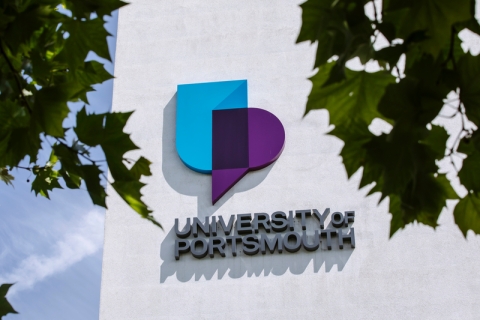

Dr Tom Garner is Course Leader for our BSc (Hons) Virtual and Augmented Reality degree. Here, he explains why studying for a degree is a great pathway to boost your career prospects in the world of extended reality.
The virtual reality (VR) industry is growing at an extraordinary rate, which means there are job opportunities across a variety of sectors. There isn’t really a single VR career path, but if you pursue a degree in Virtual and Augmented Reality, you’re going to stand out to employers who are increasingly looking to recruit employees with these in-demand skills.
Why is a Virtual and Augmented Reality degree useful?
The new wave of VR – beginning with the Oculus Rift – was initially about gaming, but is now being used far beyond the gaming industry. The skills you learn on this degree could be applied to a number of sectors including defence, health and wellbeing, education, business, entertainment and more.
As this kind of technology is growing, there couldn’t be a better time to study for a degree in Virtual and Augmented Reality and start your career in the growing number of industries embracing this technology. For example, you could support psychiatrists in using VR for cognitive behaviour therapy. Or take your explorations into space with NASA to help astronauts on longer term missions. The possibilities and opportunities with a VR degree are enormous.
What jobs can you get with this degree?
You’ll learn both the technical and design essentials of extended reality, which means you’ll have the skillset to work in a variety of different jobs. We teach user experience (UX) design and user research – giving you a solid understanding of the human-centric aspects of these technologies.
You’ll also learn project management, problem solving and complex functionality skills, which will put you ahead of the game when applying for lucrative jobs in big companies that are bringing VR into everyday life.
We also teach the skills necessary for technical and creative roles, which open doors to jobs such as coder or designer, UX researcher, mobile application developer, web designer or web developer.
Or you could work as a 3D artist, sound designer or JavaScript developer – our graduates develop the skills for many kinds of exciting roles.
What does the virtual reality job market look like?
There is currently a shortage of talent in the virtual reality industry, because the need for people experienced in this area is growing faster than the number of people who have the right skills. This means it’s the perfect time to use your creative flair to help the world understand and use this technology. Studying a virtual reality degree means that you’ll be securing your future in an industry that’s only going to get bigger and better.
What virtual reality facilities does Portsmouth have?
Thanks to £5.2 million investment, Portsmouth has The Centre for Creative and Immersive Extended Reality (CCIXR) – the UK’s first integrated facility to support innovation in the creative and digital technologies of virtual, augmented and extended realities.
This facility features cutting-edge technology from numerous different areas including motion capture, virtual production and simulation technologies.
It was launched in October 2021 and has been used for Royal Navy training simulation where users practise driving a Rigid Inflatable Boat (RIB), a chemotherapy meditation simulation and a large-scale immersive theatre project in partnership with the Royal Shakespeare Company and other arts and cultural organisations.
You’d have access to this cutting-edge technology and more. We also have an impressive virtual reality lab and motion capture studio, giving you access to industry standard equipment while studying.
How do you get into the industry?
When you study a degree in VR, you’ll get to network with industry experts. Portsmouth has strong industry connections with companies such as The Royal Shakespeare Company, Climax Studios, IBM, Philharmonia, The Royal Navy, Ministry of Defence (Defence Science and Technology Laboratory) and Industrial Light and Magic that can help you network and build contacts with potential employers, so before you even leave we’ll be helping you forge a career path in this thriving industry.
The skills you learn on this degree could be applied to a number of sectors including defence, health and wellbeing, education, business, entertainment and more.
Dr Tom Garner is a Senior Lecturer in Immersive Technologies
